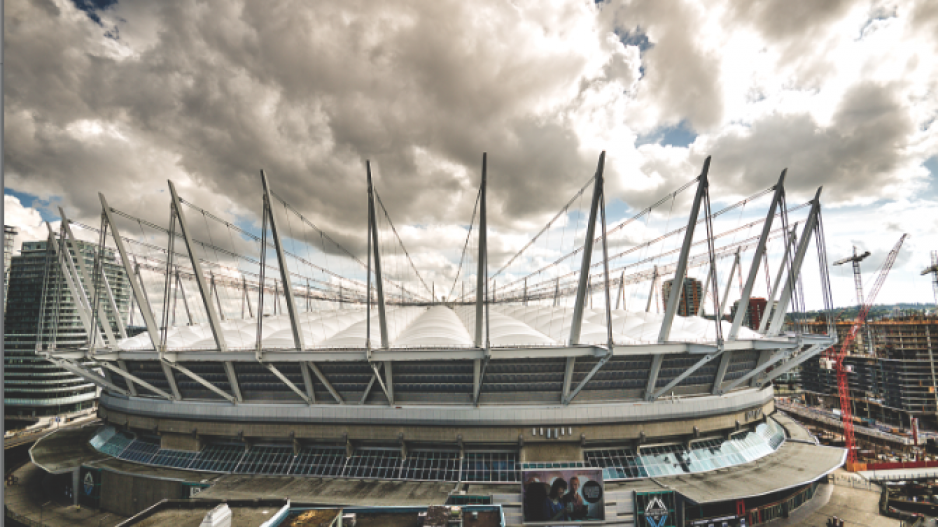In principle, you do not buy what you cannot afford.
But when it comes to shiny objects and public finances, well, you just figure out a payment plan.
We are only partly through the nightmarish economic journey of hosting seven 2026 World Cup games, and last week’s financial revelations were anything but assuring.
In case you failed to PVR the game, the new score is a scorching cost of $483 million to $581 million. Two years ago, it was half that. To ensure it’s not much worse, the new numbers contain contingencies, but that shouldn’t make us feel better.
The provincial tourism minister holding the bag here, Lana Popham, told us the obvious – that when B.C. got the initial numbers, “it was before we had a full understanding of the requirements.” To which one’s reflex is a version of “No kidding, Sherlock.”
No one appears to have told anyone with the power to proceed on this odyssey into financial hell that there are six levels of governance throwing their weight around on our planet, in order: municipal, provincial, federal, the Vatican, the International Olympic Committee (IOC) and, at the very pinnacle, the International Federation of Association Football (FIFA). To subject oneself to its presence is to experience an occupying force only one step shy of an invading, marauding army. Vancouver will be Fifaville.
If you want to start blaming anyone for today’s problematic circumstance, usually a good place to start is with yesterday’s boss.
When he was a more cautious B.C. premier in 2018, John Horgan initially balked at the idea of lending support – and our money – to games in Vancouver. He worried about the “blank cheque” he could be signing. It bothered some soccer fans, but mostly it seemed a rare outbreak of economic common sense from an NDP government.
But in 2022, when Horgan was more settled in the role and emboldened by freewheeling pandemic public spending, he thought about it more and decided he’d been a downer. Why of course, he said, you can have the shiny object. Besides, other cities were in on the games in the United States, Mexico and Canada. Who wants to be a B.C. politician in 2026 when soccer fans are flocking to Seattle – or, pray tell, Toronto – when Vancouver is considered Canada’s soccer capital?
So when Edmonton, of all soccer meccas, was ruled out as a host city and Montreal, of all free-spending meccas, at first said yes and then said no, Vancouver jumped back in with two feet. Forget that Montreal was a red flag; Vancouver treated it like the starter’s flag.
And here we are, Premier David Eby having inherited the fiscal challenge from our current ambassador to Germany, with long-overdue financial estimates predicting a “net cost” – a softer term than “loss” – of somewhere between $100 million and $145 million. That doesn’t include the federal, provincial and municipal revenue into producing that net cost.
The $621 million in economic benefits includes $533 million in labour income, some of which is taxpayer-funded. A large chunk of benefits presume to come after the games are gone, with an estimate of a billion-dollar windfall of one million tourists returning to Vancouver. I’ll take that bet.
Vancouver Mayor Ken Sim said last week the support of the games is a “no-brainer,” and it bears reminding there are two interpretations of that term. His jubilance fits with the fandom of the current council in an emphasis on The Rolling Stones, the Junos and the Invictus Games in the coming year, rather than the less-shiny conditions of unaffordability and street safety.
It is worrisome that BC Place will get suite upgrades and accessibility elevators – and, for some reason I can’t fathom, a new scoreboard – because most everyone in the sports business considers it a white elephant. As a Lions and Whitecaps season ticket holder for several years, I’m not alone in preferring a multi-purpose 30,000-seat stadium for soccer, football and baseball. Hastings Park, the site of a very depressing thoroughbred racing spectacle, would be ideal.
Post-World Cup, take BC Place down, build thousands of provincial housing units in its place, improve public transit by running through the Millennium Line’s Brentwood station in Burnaby down to the Pacific National Exhibition and over to the North Shore.
Won’t happen. I’ll take that bet, too. There are bound to be more shiny objects, just wait.
Kirk LaPointe is a Glacier Media columnist with an extensive background in journalism.




